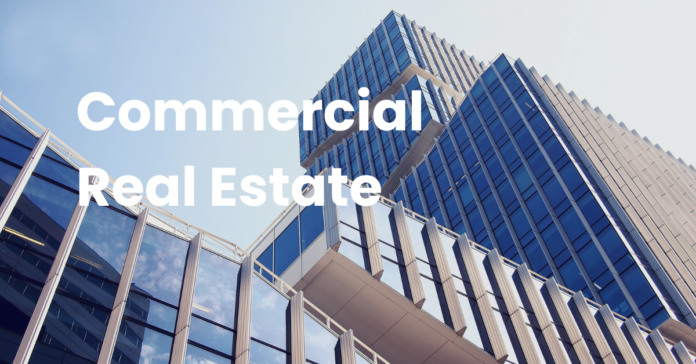Introduction
Commercial real estate (CRE) is a critical sector within the real estate industry, encompassing various properties utilized for business purposes. Understanding the nuances of commercial real estate can provide valuable insights for investors, business owners, and real estate professionals. This article will explore the different types of commercial properties, the process of investing in CRE, key factors to consider, and the benefits and risks associated with this investment type.
Understanding Commercial Real Estate
Definition of Commercial Real Estate
Commercial real estate refers to properties used exclusively for business activities. These properties generate income through leasing space to tenants or conducting business operations. Unlike residential real estate, which is primarily for living purposes, commercial properties serve various industries and can range from retail spaces to office buildings and warehouses.
Types of Commercial Real Estate
Commercial real estate can be categorized into several types, including:
- Office Buildings: These properties house businesses and organizations and can vary from small professional offices to large corporate headquarters.
- Retail Spaces: This category includes shopping centers, standalone stores, and restaurants. Retail spaces are often located in high-traffic areas to attract customers.
- Industrial Properties: These properties are used for manufacturing, warehousing, and distribution. Industrial real estate can include factories, logistics centers, and research and development facilities.
- Multifamily Properties: While primarily residential, multifamily properties with five or more units are considered commercial real estate. This category includes apartment complexes and condominiums.
- Hospitality Properties: This includes hotels, motels, and resorts that cater to travelers and tourists.
- Mixed-Use Developments: These properties combine different uses, such as residential, commercial, and retail spaces, within the same development.
Investing in Commercial Real Estate
Understanding the Investment Process
Investing in commercial real estate involves several steps, from research to closing the deal. Here’s a breakdown of the typical investment process:
- Market Research: Conduct thorough research to understand market trends, property values, and demand in specific areas. Analyze local economic conditions, population growth, and employment rates.
- Financing Options: Explore financing options for your investment. Traditional bank loans, private lenders, and real estate crowdfunding platforms are common sources of financing for commercial properties.
- Property Search: Work with a commercial real estate agent or broker to identify potential properties that align with your investment goals. Consider factors such as location, property type, and income potential.
- Due Diligence: Once you identify a property of interest, conduct due diligence to assess its condition, financial performance, and potential risks. This process often includes property inspections, financial analysis, and reviewing lease agreements.
- Making an Offer: If satisfied with your due diligence, submit an offer to the seller. This offer typically includes the proposed purchase price, contingencies, and a timeline for closing.
- Closing the Deal: After negotiating and finalizing the terms, proceed to close the deal. This involves signing contracts, transferring ownership, and paying closing costs.
Key Factors to Consider
When investing in commercial real estate, several key factors can significantly impact your success:
- Location: The location of a property is one of the most critical factors in commercial real estate. Proximity to major highways, public transportation, and amenities can attract tenants and customers.
- Market Demand: Understanding the demand for specific property types in a given area can inform your investment strategy. For instance, a booming retail sector may indicate high demand for retail spaces.
- Tenant Quality: Evaluate the quality of potential tenants, as their financial stability will impact your rental income. Long-term leases with reliable tenants can provide a steady cash flow.
- Property Management: Consider the level of property management required. Some investors prefer to handle management themselves, while others may choose to hire a property management company.
- Zoning Regulations: Familiarize yourself with local zoning laws and regulations that may affect property use, development potential, and future investments.
Benefits of Investing in Commercial Real Estate
Investing in commercial real estate can offer several advantages, including:
- Higher Returns: Commercial properties typically yield higher returns compared to residential real estate. Investors can benefit from rental income and property appreciation.
- Long-Term Leases: Commercial leases often have longer terms than residential leases, providing stability and predictable cash flow for property owners.
- Tax Advantages: Investors in commercial real estate may qualify for various tax benefits, including depreciation deductions and potential tax credits.
- Diversification: Adding commercial properties to your investment portfolio can diversify your assets, reducing overall risk.
Risks of Investing in Commercial Real Estate
While there are many benefits to investing in commercial real estate, it’s essential to be aware of the potential risks:
- Market Volatility: The commercial real estate market can be susceptible to economic downturns, affecting property values and rental demand.
- Tenant Risk: The financial stability of tenants is crucial. If a tenant defaults on their lease, it can lead to significant financial losses for the property owner.
- High Initial Costs: Commercial properties often require substantial upfront investment, including down payments, closing costs, and potential renovations.
- Management Challenges: Managing commercial properties can be time-consuming and complex. Property owners may need to handle tenant disputes, maintenance issues, and regulatory compliance.
Conclusion
Commercial real estate can be a lucrative investment opportunity for those willing to navigate its complexities. By understanding the different types of commercial properties, the investment process, and the associated benefits and risks, investors can make informed decisions that align with their financial goals. Whether you’re a seasoned investor or just starting, thorough research and strategic planning are key to success in the commercial real estate market.
